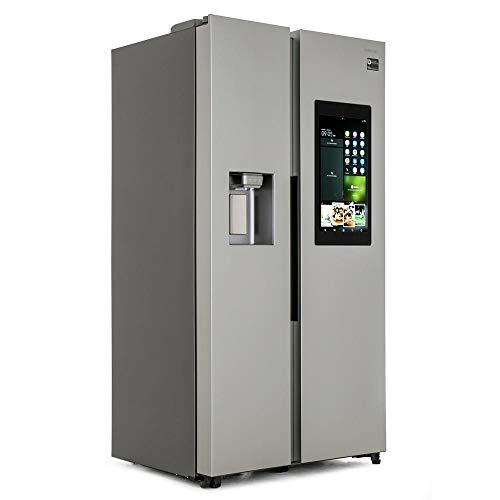A Comprehensive Guide to Buying a Fridge: Tips and Considerations
Acquiring a refrigerator is a significant decision for any family. The best fridge not only keeps your food fresh however also improves the visual appeal of your cooking area. With a multitude of alternatives offered in the market, possible purchasers deal with the obstacle of discovering a refrigerator that fits their requirements and fits their budget plan. This article provides important insights into the necessary elements to think about when buying a fridge, categorizes the various types available, and answers some frequently asked concerns.
Types of Refrigerators
Before diving into the buying process, it's vital to comprehend the various kinds of refrigerators offered. Each type serves a distinct purpose and includes its own set of functions. Here's a quick introduction:
| Type | Description | Suitable For |
|---|---|---|
| Leading Freezer | A conventional design with the freezer compartment on top. | Budget-conscious consumers. |
| Bottom Freezer | Refrigerator above, freezer at the bottom. | Those who often access fresh food. |
| Side-by-Side | Two vertical sections, one for the fridge, one for the freezer. | Large families with diverse storage requirements. |
| French Door | Separate compartments for fridge and freezer with large doors. | Elegant kitchens and devoted cooks. |
| Compact | Smaller and portable, ideal for minimal areas. | Dorms or studio apartments. |
| Smart Fridges | Equipped with Wi-Fi and touch screens for advanced functions. | Tech-savvy users seeking benefit. |
Understanding these various types can help purchasers identify what fits their lifestyle and kitchen area design best.
Secret Considerations When Buying a Fridge
1. Size and Space
The size of the refrigerator is one of the crucial factors to think about. Measure the available area in your kitchen where the fridge will reside. Keep in mind:
- Depth, Width, and Height: Ensure that the fridge complements your kitchen area's total design.
- Door Swing: Check that the door can open easily without blockage.
- Capability Needs: Consider how much food you typically save and select a fridge with an appropriate cubic foot capacity.
2. Energy Efficiency
When purchasing a new fridge, look for energy-efficient designs. Energy Star-rated fridges take in less electricity, which can substantially minimize utility expenses. Factors to examine include:
- Energy Guide Label: This offers a price quote of the annual energy usage.
- Inverter Technology: Helps keep temperature while consuming less power.
3. Functions and Technology
Fridges come with a myriad of features and technological advancements. Selecting the best mix can considerably enhance convenience:
- Temperature Control: Look for models that use accurate temperature level settings for various compartments.
- Smart Technology: Wi-Fi connectivity can provide alerts, dish ideas, and stock checks.
- Ice and Water Dispenser: Consider whether you want an in-door water and ice dispenser to save area and enhance availability.
4. Design and Design
The visual appeal of your refrigerator can match the general kitchen style. Consider the following styles:
- Finish Choices: Stainless steel, matte black, and traditional white are popular surfaces.
- Manage Design: Choose a handle style that matches your cooking area's decoration and is easy to open.
5. Rate and Brand Reliability
While there are numerous spending plan choices readily available, investing in a trustworthy brand name often equates to dependability and toughness. Think about the following:
- Warranty: A strong guarantee can protect against flaws and failures.
- Consumer Reviews: Research user feedback to determine performance and service quality.
Purchasing Tips
- Research: Spend time reading evaluations and comparisons before deciding.
- Sales and Promotions: Look out for sales during holidays or unique occasions to get better deals.
- In-store Experience: Visit regional appliance shops to see the designs personally and ask concerns to knowledgeable staff.
Frequently asked questions about Buying a Fridge
1. How long can I expect my refrigerator to last?
On average, a refrigerator lasts in between 10 to twenty years, depending on the brand and upkeep. Routine upkeep can extend its life-span.
2. What should you could try this out do if my refrigerator isn't cooling properly?
Start by inspecting the temperature settings, guarantee the door seals are intact, and keep the coils clean. If problems persist, speak with an expert service technician.
3. Are wise fridges worth the investment?
Smart fridges can be advantageous for tech-savvy users and those who value benefit. Functions like inventory management and remote gain access to can conserve time and reduce food waste.
4. How do I correctly maintain my refrigerator?
- Clean the interior regularly to get rid of spills and odors.
- Defrost if you encounter frost buildup.
- Examine the door seals to guarantee they are tidy and practical.
5. What is the very best refrigerator brand name?
There is no one-size-fits-all answer. However, brand names like Whirlpool, Samsung, LG, and Frigidaire are often appreciated for quality and customer service.
Ultimately, buying a refrigerator involves far more than just choosing a random design off the rack. By putting in the time to evaluate your needs, evaluating type choices, comprehending critical features, and thinking about style aesthetic appeals, you can make an informed decision that will serve your household well for many years to come. With the ideal option, your refrigerator will be a trusted companion in your daily kitchen area operations.

